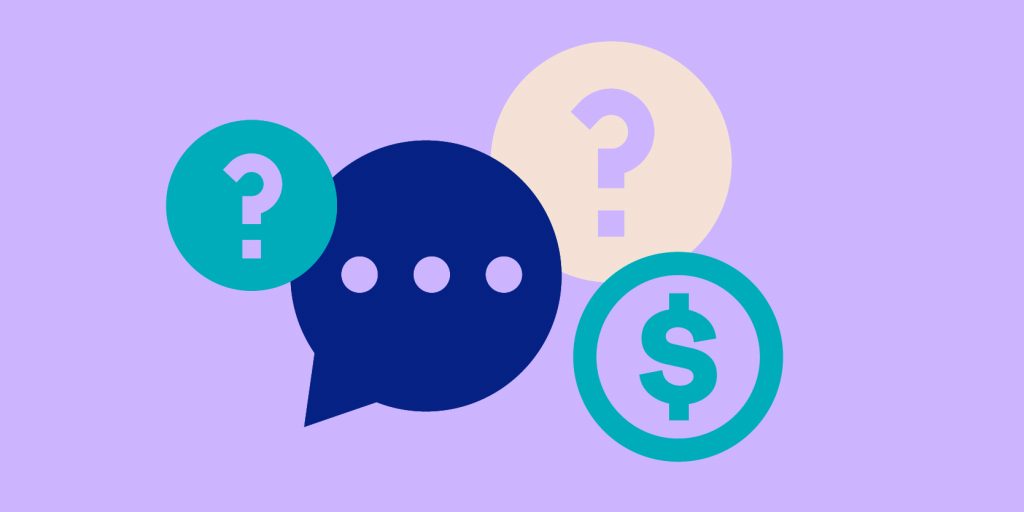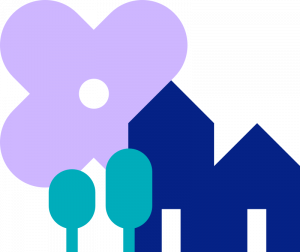With online mortgage lenders becoming more popular, it’s possible to go through the entire mortgage process without talking to a human. That doesn’t mean you should. Sure, you’ll end up knowing the most important info, like the size of the mortgage, interest rate, and monthly payment. But you could miss out on the opportunity to learn enough about your options—and the lender—to find the best mortgage for you.
Here’s what to ask a mortgage lender:
-
What types of mortgages do you offer? (And which is best for me?)
Most mortgage lenders offer several types of mortgages. One is a conventional (or traditional) loan. Of those, you can choose between a fixed-rate loan and an adjustable-rate loan. There are also government-insured loans, such as a Federal Housing Administration (FHA) loan or a Veterans Affairs (VA) loan. Each varies in terms of interest rates, down payment requirements, and other factors.
Not all lenders offer all types of mortgages, so ask what they offer, and what they’d recommend for you. It’s in their interest to sell you the loan that’s the best fit for your financial situation, so a good mortgage lender should be able to make a trustworthy recommendation. Using Trulia’s mortgage calculator, you can see how different types of mortgages can affect your monthly payment. And you can use Trulia’s pre-qualification tool to connect with local lenders near you.
-
Do you work with any down payment assistance programs I might qualify for?
Different states, cities, and organizations offer down payment assistance programs. Many depend on your income, or other factors, like where the house you’d like to buy is located. Do your own research first to make sure you know what should be available to you (the Down Payment Resource is a great site to check), and then make sure your mortgage lender works with any program you’d like to use. You can use Trulia’s affordability calculator to find out how a larger down payment could affect the size of the mortgage you can afford.
-
Do you charge a prepayment penalty?
You’ll thank yourself for this one if you come into a hefty inheritance while paying off your mortgage. Some mortgage lenders will charge you extra if you pay your mortgage off early — this lets them make up for some of the interest they won’t be making from you anymore. In some states this isn’t even legal anymore, so you may not have to worry about it. But it pays (sometimes literally) to ask.
-
How does your interest rate lock work?
Because buying a home can be a drawn-out process and market interest rates change daily, many lenders offer ways to lock in the interest rate they offer you for a set period of time. That way, if rates shoot up between the time you get mortgage pre-approval and when you’re ready to fully apply, you won’t find yourself unable to afford the same home you could at the beginning of the process.
Some mortgage lenders charge to lock an interest rate, and some don’t—and the charge can vary by the length of time it’s locked.
-
How do you handle points? Do you recommend I buy them?
If you want a lower interest rate, you can often pay for one. Mortgage lenders use discount points, or mortgage points, to allow borrowers to reduce their interest rate by paying more up front. One point is equal to one percent of the total loan. These are typically due at closing.
Whether or not they’ll benefit you depends a lot on your financial situation and how long you plan to stay in the house. Talk to your mortgage lender about what your points options are, and whether or not they’ll be a good investment.
-
What will your origination fees and other closing costs be?
Within three days of receiving your completed loan application, mortgage lenders are required to send you a Loan Estimate. This will include all of your expected closing costs. But it’s helpful to understand what to expect in advance because different lenders require different closing costs.
One big closing cost to ask about is the origination fee. This is a fee that is intended to cover the costs of processing the mortgage. Ask your mortgage lender about their origination fees and what internal costs they use it to cover. If you’d like to, you can negotiate this fee.
-
How long will it take to close?
It typically takes between 21 and 45 days to process a mortgage. That can be a pretty big range when you’re waiting to close on a home, so find out what’s typical for your mortgage lender so you can plan accordingly. Also, ask what happens if closing takes longer than expected and the lender is the hold-up. If you could incur penalties or have to pay extra housing costs, ask if the lender guarantees you’ll be able to close on a house on time.
Found a mortgage lender with the right answers? Time to find a mortgage with the right numbers. Here’s how to pick the best type of mortgage for you.



